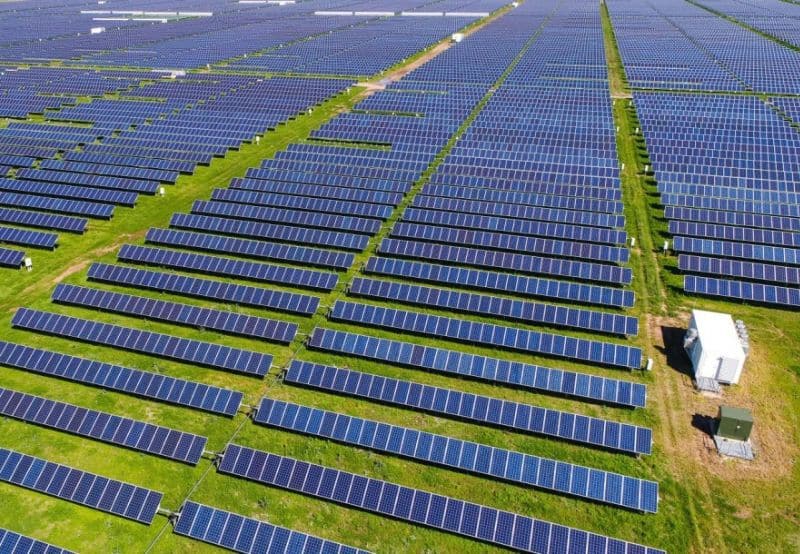India Surpasses 100 GW in Solar Power Capacity

India has reached a significant milestone in its renewable energy journey by surpassing 100 gigawatts (GW) of installed solar power capacity. This achievement not only highlights India’s commitment to a cleaner and greener future but also positions the country as a global leader in renewable energy. The milestone is a crucial step toward achieving the ambitious target of 500 GW of non-fossil fuel-based energy capacity by 2030, as set by Prime Minister Narendra Modi.
Union Minister of New and Renewable Energy, Shri Pralhad Joshi, emphasized the importance of this achievement. He stated that under Prime Minister Modi’s leadership, India’s energy journey over the past decade has been both historic and inspiring. The introduction of initiatives such as solar panels, solar parks, and rooftop solar projects has led to revolutionary changes in the energy landscape. Joshi noted that India is not only becoming self-reliant in green energy but is also setting an example for the world.
Unprecedented Growth in Solar Sector
India’s solar power sector has experienced remarkable growth over the last decade. The installed capacity surged from a mere 2.82 GW in 2014 to an impressive 100.33 GW by January 31, 2025. This represents a staggering increase of 3,450%. Currently, there are 84.10 GW of solar projects under implementation and an additional 47.49 GW in the tendering phase.
The hybrid and round-the-clock (RTC) renewable energy projects are also progressing rapidly, with 64.67 GW under implementation and tendered. This brings the total of solar and hybrid projects to an impressive 296.59 GW. Solar energy now accounts for 47% of India’s total installed renewable energy capacity, making it the dominant contributor to the country’s renewable energy growth.
In 2024 alone, India added a record-breaking 24.5 GW of solar capacity, more than doubling the installations compared to the previous year. The utility-scale solar capacity also saw significant growth, with 18.5 GW installed in 2024, nearly 2.8 times more than in 2023. Key states like Rajasthan, Gujarat, Tamil Nadu, Maharashtra, and Madhya Pradesh have played a vital role in this expansion, contributing significantly to the country’s total utility-scale solar installations.
Rooftop Solar Initiatives Transforming Households
The rooftop solar sector in India has also seen remarkable growth, with 4.59 GW of new capacity installed in 2024. This marks a 53% increase compared to 2023. A significant driver of this growth is the PM Surya Ghar Muft Bijli Yojana, launched in 2024. This initiative aims to make rooftop solar installations accessible to households across the country.
As of now, the program is nearing 900,000 rooftop solar installations, empowering families to embrace clean energy solutions. This initiative not only promotes sustainable energy but also helps reduce electricity costs for households. By making solar energy a household reality, the government is taking significant steps toward energy independence and sustainability.
Advancements in Solar Manufacturing
India has made substantial strides in solar manufacturing over the past decade. In 2014, the country had a limited solar module production capacity of just 2 GW. However, this capacity has surged to 60 GW in 2024, establishing India as a global leader in solar manufacturing. With continued policy support and investment, India is on track to achieve a solar module production capacity of 100 GW by 2030.
Under the guidance of Union Minister Shri Pralhad Joshi, the Ministry of New and Renewable Energy (MNRE) has implemented key initiatives to scale up renewable energy capacity in India. The achievement of the 100 GW milestone in solar energy underscores India’s role as a renewable energy powerhouse. It ensures clean, sustainable, and affordable energy access for millions while shaping a self-reliant energy future.
Observer Voice is the one stop site for National, International news, Sports, Editor’s Choice, Art/culture contents, Quotes and much more. We also cover historical contents. Historical contents includes World History, Indian History, and what happened today. The website also covers Entertainment across the India and World.

